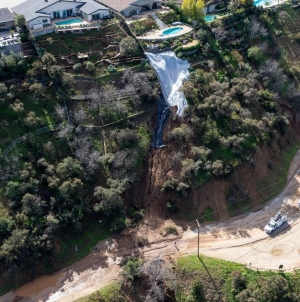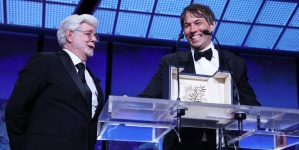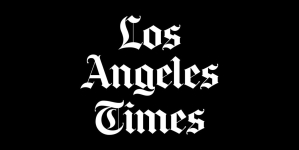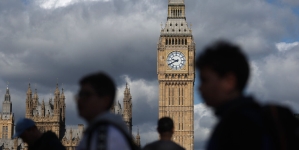-
Opinion | Trump Can Get a Fair Jury in Hush Money Case - April 16, 2024
-
A portion of Mulholland Drive, damaged by mudslides in winter storms, reopens - May 26, 2024
-
‘Maybe You Don’t Want to Win’ - May 26, 2024
-
Donald Trump Putting Law Enforcement in Danger: Attorney - May 26, 2024
-
Avoid the waters of these 5 L.A. County beaches this holiday weekend, public health officials say - May 26, 2024
-
Bawdy Comedy ‘Anora’ Wins Palme d’Or at Cannes Film Festival - May 26, 2024
-
Map Shows Heat Wave Zone Spread Into Five New States - May 26, 2024
-
Azusa police arrest suspected slingshot-wielding vandal - May 25, 2024
-
Donald Trump Hammers Judge Ahead of Jury Instructions - May 25, 2024
-
Sometimes U.S. and U.K. Politics Seem in Lock Step. Not This Year. - May 25, 2024
Opinion | Trump Can Get a Fair Jury in Hush Money Case
If Donald Trump has been clear about anything, it is this: “I cannot get a fair trial in New York.”
By New York, he means Manhattan, where he won slightly less than 10 percent of the vote in 2016 and about 12 percent in 2020 and where, as one of his lawyers argued last week, “In terms of prejudicial pretrial publicity in this county, this case stands alone.”
Of course, Mr. Trump doesn’t want a fair trial. Like any other criminal defendant, he wants a jury that is biased in his favor. But can he get a jury that is able and willing to give him a fair shake?
My answer, based on my more than 40 years as a jury consultant for politicians, celebrities, Wall Street financiers and others accused of criminal wrongdoing, is that he can. Granted, Mr. Trump is as high-profile and polarizing as a defendant can be. But the adversarial nature of the selection process and the remarkable can-do attitude that jurors so often display result in a fair jury almost always.
For Mr. Trump, we’re about to find out. Jury selection is scheduled to begin Monday in the hush-money trial brought by Alvin Bragg, the Manhattan district attorney. Mr. Trump faces 34 felony charges related to what prosecutors say was a scheme to pay hush money to a porn star to cover up a sex scandal as he was running for president in 2016. He will become the first former president to go on trial on felony criminal charges.
For all of the media attention that has focused on this case and the others Mr. Trump has faced and is facing, in my experience, well-instructed juries have shown time and again that they can put aside what they have learned outside the courtroom and focus on the evidence presented inside the courtroom. What is likely to unfold in the trial will undoubtedly absorb the jurors’ full attention. Having sworn to the court that they will shelve their preconceptions, the jurors are likely to focus on the evidence and follow it to where it leads. Our brains tend to focus on what’s in front of us, and the evidence in this case surely will be compelling for the jurors.
That said, Mr. Trump might prove to be his greatest enemy. Several studies have raised concerns about jurors turning to the internet for case-relevant information while serving on juries, even though they had been instructed not to consider outside information. This might present a challenge for Mr. Trump if he continues to salt the internet with invective. Even so, a carefully instructed jury should be able to sideline his vitriol in favor of the evidence.
Jurors who will sit in judgment of Mr. Trump will have survived what is likely to be a lengthy selection process intended to root out potential bias. They will fill out detailed questionnaires and may be questioned in court by the judge and the lawyers for both sides to elaborate on their written responses. Jurors who cannot be fair will be dismissed by the judge. Days or even weeks could pass before enough jurors are deemed impartial and selected. Additionally, the defense and prosecution each will be able to reject 10 more potential jurors for any reasons except for a juror’s race or gender or other similar identifying characteristic.
This extensive process of inquiry was cited by a federal district judge in a 1989 decision rejecting an effort by Leona Helmsley, the billionaire hotelier, to move her tax evasion trial out of Manhattan. She became widely mocked in headlines in New York papers as the “Queen of Mean.”
But Judge John Walker of the Federal District Court in Manhattan wrote in an opinion ruling on her motion that “after reading more than 100 comprehensive juror questionnaires, and after spending more than three days carefully interviewing more than 100 jurors individually, this court has no hesitation in answering that ‘fundamental question’: a fair and impartial jury can indeed be obtained in this case.”
I was the jury consultant on that case. Mrs. Helmsley was convicted. I thought she got a fair trial despite her reputation outside the courtroom.
The 12 jurors and six alternates who survive this interrogative process in the Trump hush money case will swear to follow the law as it is explained to them by the judge, whether or not they personally think it is a good law. This is the definition of fairness in the courtroom.
The linchpin of this proceeding will be the judge overseeing the trial, Juan M. Merchan, who has spent 17 years on the bench and was described as a “no-nonsense, drama-averse jurist” in a recent profile in this paper.
How he manages the trial will be instrumental to its fairness. Justice Merchan has already agreed to Mr. Bragg’s request to withhold the names of jurors from the public. He can tell prospective jurors: “I have decided that your names will not be known to the public to help you to feel safer and more free to be fair.” This decision should go a long way to reassuring prospective jurors that they will be protected from harassment or attempts at tampering. (Lawyers in the case will know the identities of the prospective jurors, however, and no doubt will be looking into their backgrounds.)
I also worked on the obstruction-of-justice case against the entrepreneur and television personality Martha Stewart in 2004 arising from initial allegations of insider trading. In the jury selection process, Judge Miriam Goldman Cedarbaum of the Federal District Court in Manhattan barred reporters, courtroom artists and others from attending sessions at which prospective jurors were questioned by lawyers. She said that having outsiders present might prevent prospective jurors “from giving full and frank answers to questions posed to them” and noted that “without such candor on the part of prospective jurors, there is a substantial risk that defendants’ absolute right to a fair trial and an impartial jury will be impaired.”
Ms. Stewart, too, was convicted, and I think she also received a fair trial, though questions were raised about the veracity of one of the jurors. Do jurors lie when questioned by the judge or lawyers? In my experience, based primarily on post-verdict investigations, most do not. But one or two bad apples will not spoil the rest. Juries are better than the sum of their parts.
Ultimately, for the jurors, the judge’s words to them will be crucial to their understanding of their role. And from those words, jurors should feel that Justice Merchan understands the difficulties they face in having to put to one side their existing views.
If I were offering him advice in this case, I would suggest that Justice Merchan make two points.
He should emphasize, with a show of empathy, the great importance of fair juries. “Some of you may be thinking, ‘I have strong opinions. I cannot do this.’ Please think carefully about this,” he might tell them. “You cannot stop knowing what you know. But the evidence presented here can and must be at the forefront of your thinking.”
And he should use ennobling words to underscore the significance to the jurors of their role in sitting in judgment of Mr. Trump, whom they must presume is innocent but is charged with criminal wrongdoing.
“No one can do this job better than those of you selected to serve as jurors,” he might tell them. “As citizens of this country, we depend on one another to rise to the challenge of moments like these. We are grateful for the commitment you will apply to achieve fairness. The evidence deserves your open-minded attention. Trial by jury is bedrock to our democracy.”
Julie Blackman has a Ph.D. in social psychology and has worked as a jury consultant on many well-known criminal cases. She is the co-author of an article on the influence of the internet in high-profile trials that has been accepted to appear in an upcoming issue of The Champion, the journal of the National Association of Criminal Defense Lawyers.































